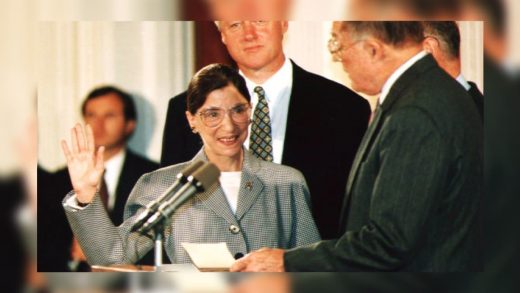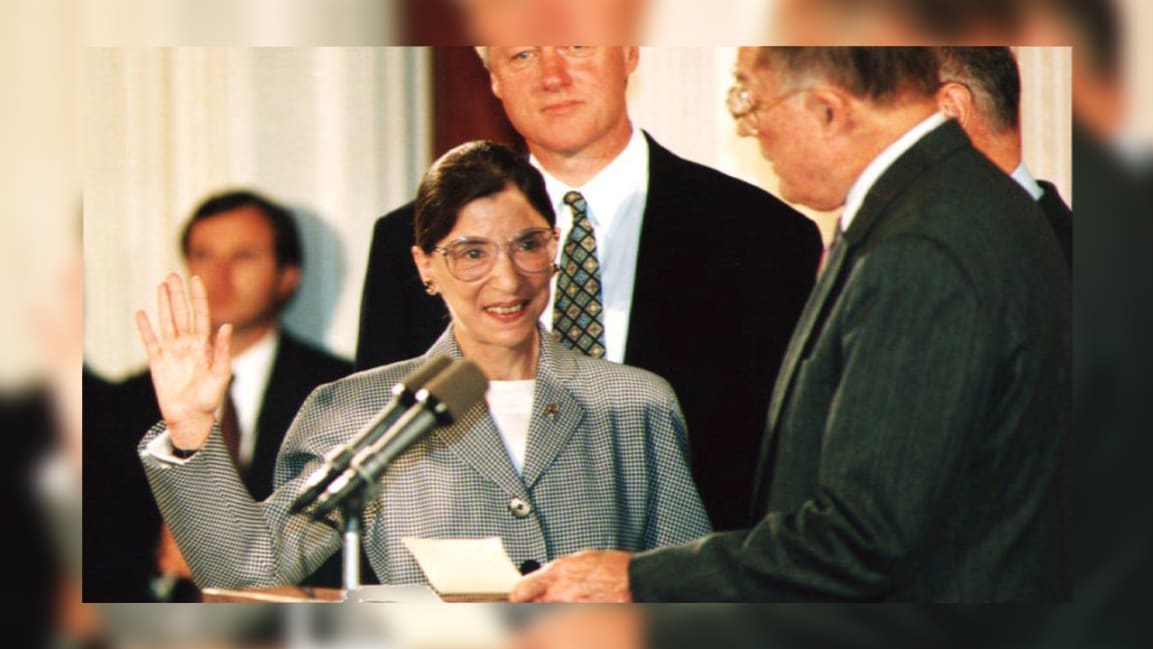Ruth Bader Ginsburg changed my life forever—but her fight isn’t over
Something happened in the summer of 1993 that would have a profound impact on my life 18 years later. Ruth Bader Ginsburg was nominated and confirmed to the Supreme Court of the United States. Her legacy is not only one of social justice, it is one of economic inclusion.
On May 29, 2007, Justice Ginsberg wrote the dissenting opinion in a landmark wage case, Ledbetter v. Goodyear Tire and Rubber Company. The central question in the case was the statute of limitations for wage disputes under Title VII of the Civil Rights Act of 1964.
In her dissenting opinion, Justice Ginsberg stated that Lilly Ledbetter “may have little reason even to suspect discrimination until a pattern develops incrementally and she ultimately becomes aware of the disparity.” Justice Ginsburg’s argument became the basis for the Lilly Ledbetter Fair Pay Act passed by Congress in 2009, which incidentally became the first piece of legislation President Obama signed into law.
It was this law that I used to fight for pay equity after returning from maternity leave two years later.
When I discovered a pay discrepancy, I conducted research and found the Lilly Ledbetter Fair Pay Act which changed the statute of limitations for equal pay. That’s when I called the HR manager and said, “This is a Lilly Ledbetter issue. Every time you pay me the statute of limitations starts over. What do you want to do about it?”
To its credit, my employer increased my job level, increased my pay, and gave me back pay. Justice Ginsburg’s nomination to the court and that dissenting opinion paved the way to ensure that I would be paid equitably and that my children would have equitable opportunities regardless of the fact that their mother is the breadwinner. Justice Ginsburg’s lived experience (and her willingness to use it) changed my life forever.
The share of breadwinning moms in the U.S. has increased by 166% since 1970. And, breadwinner moms have the largest pay gap of any cohort of women in the labor force: 66 cents on the dollar. If we closed the gender pay gap, we could add $512 billion to the U.S. economy and close the Social Security Savings gap by a third. Since 1970 the U.S. economy has grown by $2 trillion because of women’s increased labor force participation.
Justice Ginsburg also wrote the dissenting opinion for another landmark case, Shelby County v. Holder. The central question in the case was whether or not the coverage formula in Section 4(b) of the Voting Rights Act of 1965 was still constitutional. This is the law that Representative John Lewis almost gave his life for. The court concluded that it wasn’t.
It previously gave covered jurisdictions the green light to change voting laws, with no federal pre-clearance necessary. Electoral degradation ensued. Between 2014 and 2016, more than 17 million people were purged from voter rolls. And compared to the period between 2006 and 2008, the number of names purged from the rolls between 2014 and 2016 increased by 33%. In her dissenting opinion, Justice Ginsburg stated that when the Court struck down Section 4(b) it, “terminate[d] the remedy that proved to be best suited to block that discrimination.”
The icons in our lives do not exist simply so we can lean on them for hope. They exist so that we might see what is possible for us and so that we can give hope to others, and not give up the fight. I am a breadwinner mom who fought to be paid equitably twice and won thanks to Justice Ginsburg.
Now with 43 days until the most consequential election of our lifetimes, we must vote. Our entire system of justice is built on it. Let Justice Ginsburg’s inspiration call us forward to action and bravery and remember the words of another champion of social justice we lost this year, Representative John Lewis: “The vote is the most powerful nonviolent change agent you have in a democratic society.”
In a time of COVID-19, the worst economic crisis since the Great Depression, and renewed calls for racial justice, Justice Ginsburg’s legacy matters not only for the preservation of our democracy but also for the future of our economy. There is a $2 trillion opportunity waiting for us on the other side of inclusion.
Katica Roy is the CEO and founder of Pipeline Equity.
(39)



